Fantasy in non-Western settings has become increasingly visible and popular, with books by S.A. Chakraborty and G. Willow Wilson garnering major awards and legions of fans. While some argue on line these should be called “historical fantasies,” they are more like “regional fantasies” because they do not always take place at a recognizable historical point. Rather than rehash the same medieval European stand-ins, these novels embrace distinct regional folklore and religions developed over thousands of years of independent storytelling and history, with settings enhanced by vivid descriptions of the hostile, soaring mountains of Afghanistan, the slums of Beijing, or the delicate tracery of the Alhambra.
While their coming of age stories and heroic journeys will feel familiar to fantasy readers, these new stories develop with reference to unique regional histories and traditions with profound resonances. The Poppy War by R. F. Kuang begins with the typical YA special school plot: the orphaned Rin escapes her brutal adoptive parents by testing into a special school, only to find herself ridiculed for her gender, skin color, poverty, and provincial origin. As we go along, Rin’s journey evolves into a heroic one, but this is no easy reading: Kuang’s over-the-top violence references the brutality of Japanese occupiers of China in the early 20th Century. As Kuang states in an interview in Bookpage.com:
The Poppy War’s plot is mirrored almost entirely on the Second Sino-Japanese War (World War II). You see a deeply militarized, westernized society invading a comparatively backward, huge but fragile empire. You also get a fantasy version of the Rape of Nanjing, the experiments of Unit 731 and the Battle of Shanghai. And the themes of the book are, of course, intergenerational trauma and cycles of violence—extremely important topics in Sino-Japanese relations today.
The heroic journey and coming-of-age plot are hardly unique to Western tradition, and yet these fantasies are highly attuned to modern concerns about the interplay of cultural values, or progressive and reactionary forces within a culture. Their strong female protagonists care deeply about women’s repression and the injustice of slavery. The heroine in Ausma Zehanat Khan’s The Bloodprint fights to stop the trafficking of women, but even with her special powers, she can do little to stop a wave of repressive religious leaders who vilify the written word to keep people, women especially, ignorant and powerless. Given the settings evocative of Iran, Afghanistan, and the Silk Road, Khan’s reactionaries, “the Talisman,” could hardly be more thinly disguised.
At the same time, these authors are aware of how Middle Eastern cultures like Afghanistan’s are portrayed in Western fantasy. Too often in, Arab-like characters or tribes are depicted monolithically as evil or brutal, like the Easterlings and Haradrim in The Lord of the Rings. S.A. Chakraborty, who wrote the very successful novels The City of Brass and the recently published The Kingdom of Copper, explained in a Kirkus interview:
I've confronted this…you open this book and it's cool and you're enjoying the story and then bam! There's a cliché. There’s something offensive. As a Muslim, it’s very frustrating to love this genre. There's only so long you can grin and bear it. I wanted people in my community to be able to read this and enjoy it.
By exploring the rich details and tensions within non-Western cultures, writers like Chakraborty push back on stereotypes and the right-wing xenophobia that is gripping the West. Besides affirming the experience of non-Western readers, by introducing complexity and conflict into subjects usually treated in black-and-white, these novels open Western minds to the historical and cultural nuances of other civilizations and create empathy.
The Bird King, G. Willow Wilson’s second novel, is set in Granada at the end of the caliphate in Spain in 1491. Newly united into an energized nation, the Spaniards are besieging Granada and starving the Sultan and the last of his court out of the Alhambra. We enter this historical time via Fatima, a girl born into slavery and forced to serve the Sultan and the Sultan’s mother. While Fatima is doted upon and given much leeway, she naturally resents her position and also the restrictions of a harem. Members of the Inquisition arrive, cruel, unwashed and uncivilized in comparison. Unlike the Christian holy writ, the Quran has rules about how slaves must be treated. When a female Inquisitor sent into the harem marvels that courtiers treat Fatima well, she explains: “They treat me with caution,” said Fatima. “I might be carrying the Sultan’s child, in which case I’m very important, especially if it turns out to be a boy. Or the sultan might sell me tomorrow… They hedge their bets.”
Patio de los Arrayanes (Court of the Myrtles), detail, Alhambra, Granada, Spain by Jebulon, 2012.
These three novels never shy away from confronting restrictive elements of Islamic (or quasi-Islamic) cultures: in Bird King, City of Brass, and Bloodprint, women are veiled, and alcohol and homosexuality are forbidden. Yet they also make sure to show complexity and diversity: in The Bird King, the Inquisitors are the inflexible and intolerant ones, compared to the sophisticated Muslim courtiers who respect artists and scholars, look the other way regarding homosexuality, and would never force (and police) Jewish conversions. When the Inquisitors accuse Fatima’s best friend, Hassan the mapmaker, of witchcraft, she sets out to escape with him with the reluctant help of a shapeshifting djinn, whatever the cost. Similarly, Chakraborty explained how, in recreating a magical 18th-century Cairo, she was interested in exploring the more complex ramifications of conquest:
A lot of these issues relating to occupation—they just resound throughout history. People take over places. I wanted to look not at the black and the white, but the gray of what that does to a place, what that does to generations of people. And just to complicate things even further, cultures mesh and they also oppose each other. I wanted a book that showed the messiness of that.
However messy, Chakraborty wanted to ensure the richness of her world was still grounded in authenticity. “I had decided when writing this,” Chakraborty says, “that those were my rules: if I couldn't find a reference to something in a text or in a story from the region, then I wasn't using it.” Regional dress, customs, and history are especially important in the three Islamic novels above. In the large Islamic realm of City of Brass, the djinn tribes mirror historical differences in the human world, as if the cultures were almost overlaid. The clothing of the djinn of a region reflect whether the djinn tribe is native to the Indian subcontinent or the Arabian peninsula, for example. Some devas still worship fire, creating tension with the strict fundamentalists, and remind us of tensions between ancient Zoroastrian traditions of the Persian empire and its Muslim conquerors. In Poppy, opium addicts and drug dealers play an important role, as does the wildcard of possible interference or aid of third party countries (much like the British in 19th-century China).
It’s important to note that great non-Western fantasies have always been around, and indeed, most readers have some background knowledge from other tales of these local supernatural beings or religions. This helps minimize information dumps. For example, Chakraborty’s djinn use flying carpets, can be enslaved to humans, and have to confront water-beings (marid). Readers don’t have to suffer through an awkward explanation of the mechanism or magic of a flying carpet, we simply recognize and accept it. In Poppy War, Rin trains to become a powerful shaman who uses opium to communicate with insane gods. Most readers will have some understanding of how hallucinogenic substances are used across various religions to elicit visions on other planes of existence. We don’t need too many details about the process.
Still, the recognition given these newest non-Western fantasies is exciting. It both vindicates their predecessors and, hopefully, shows a true culture shift toward a more enthusiastically diverse fantasy genre.
S. A. Chakraborty’s The City of Brass was shortlisted for the Locus and British Fantasy Awards, and was a finalist for a World Fantasy Award. The second novel for her Daevabad trilogy, The Kingdom of Copper, was published in January.
Ausma Zehantat Khan’s The Bloodprint: Book One of the Khorasan Archives, was published in 2017, and Book Two, The Black Khan, in 2018.
R. F. Kuang’s The Poppy Wars is a finalist for a Nebula Best Novel Award of 2018 and a Goodreads Choice Award finalist (twice.) The second novel, The Dragon Republic, will be released this summer.
G. Willow Wilson’s first region-based novel, Alif the Unseen, won a World Fantasy Award. The Bird King was published on March 19.

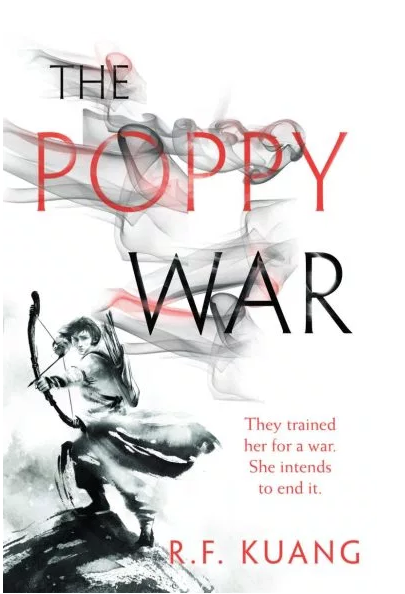
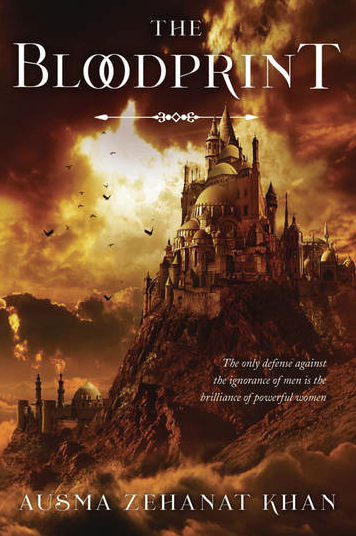
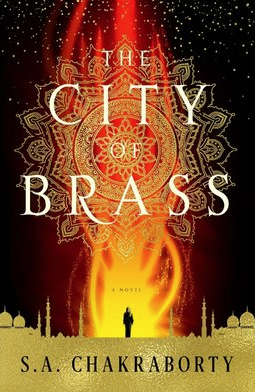
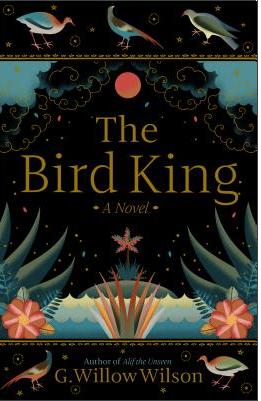
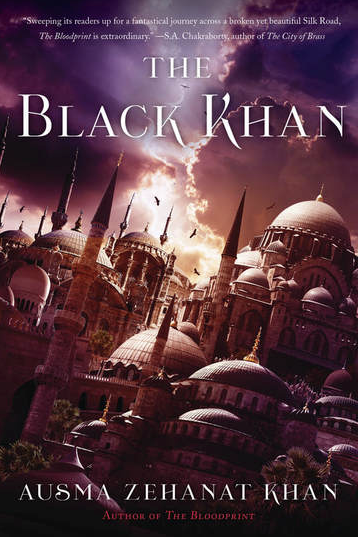

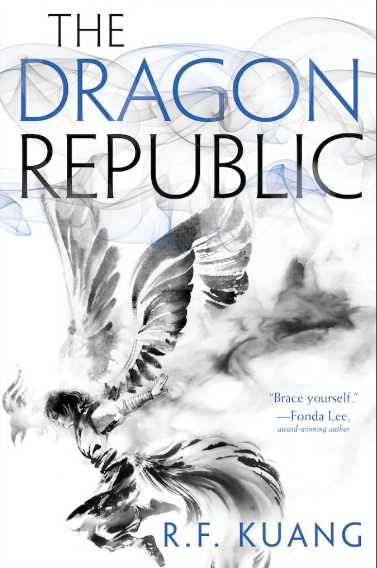




Cadwell Turnbull's new novel — the first in a trilogy — imagines the hard, uncertain work of a fantastical justice.